Are you writing website content and not seeing an uptick in visibility? Is your website struggling to rank highly for your target keywords? There may be wider issues at play that are hindering your performance, or you could be making small but impactful mistakes!
If you’re here, you’re probably looking to diagnose the issue and rectify them so you can reap the benefits of SEO growth. However, it’s worth noting that there’s a whole pool of ranking factors and potential issues from a technical, content and authority perspective that could be impacting visibility, so take a look at the full picture. Things like site speed, backlink quality, and even user experience all contribute to how well your content performs in search results.
As Embryo’s lead content writer, I’m here to share some of the common barriers that our SEO content team faces and how we work to overcome them.
If your content isn’t ranking, start by inspecting the data
Before you panic and take impulsive actions, it’s important to use SEO tools to identify any potential issues. Head to Google Search Console (GSC) to check the page’s indexing status, crawl errors, and any manual actions. If your page isn’t indexed, you can opt to submit it for crawling via the URL Inspection Tool. However, keep in mind that depending on the size of your website, Google can take some time to crawl and index your new pages.
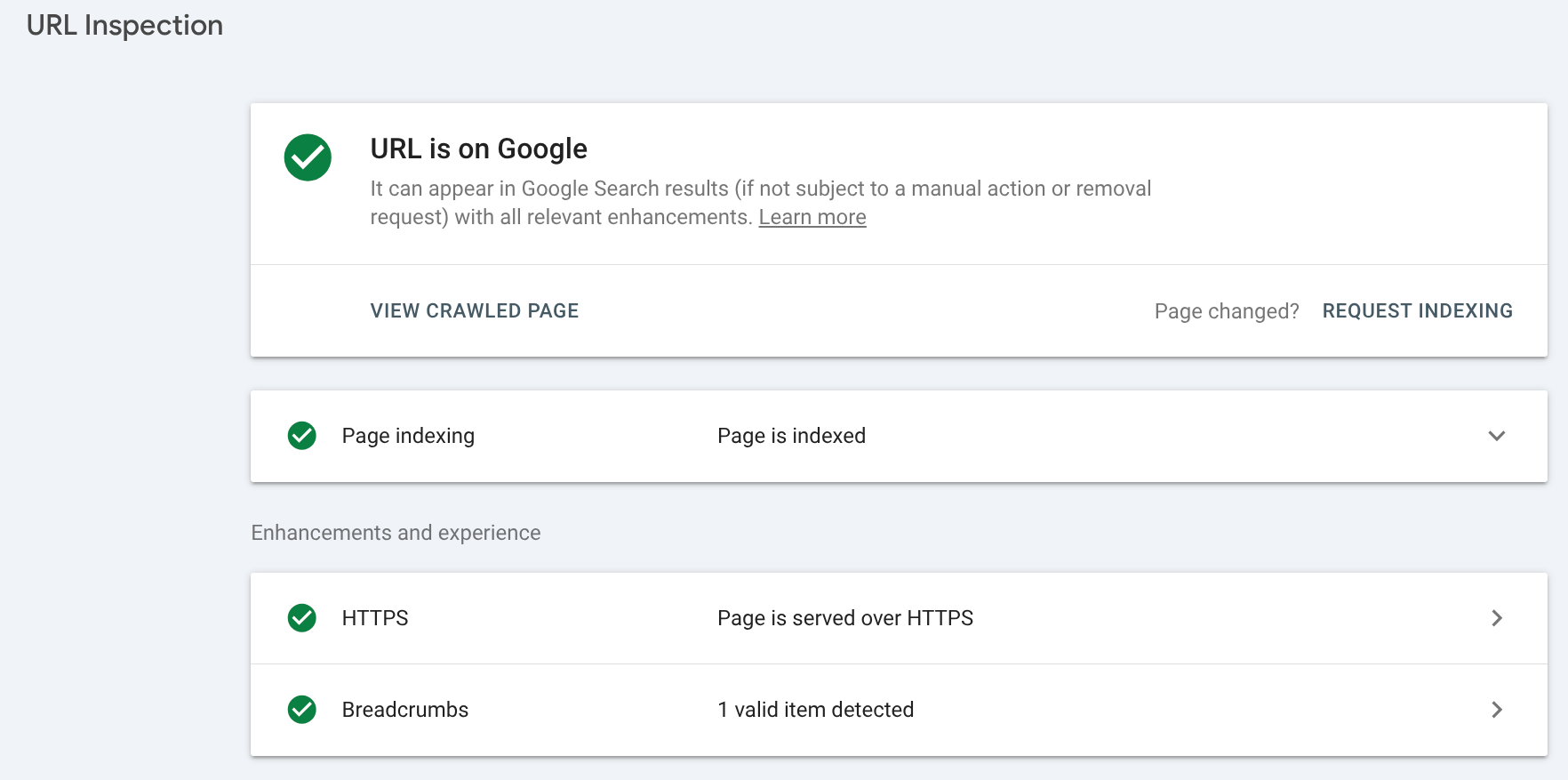
(source: Google Search Console).
If you’ve noticed that your entire website is struggling to rank for keywords, it’s also worth running a site audit. An audit assesses the health, performance and speed of a website in great detail, giving insight into technical issues that could be damaging your site’s organic visibility.
Use the outcome of your audit as the roadmap for SEO improvements before you start to look at optimising content or creating more. Technical foundations must be stable to rank; think of it as the runway before your content takes off.
AI content
Google’s primary goal is to serve up genuine, useful content to its millions of users. In order to achieve this goal, it must filter out any content that may be perceived as poor quality or spammy. Therefore, if you’ve produced pages using AI and are not seeing it perform as expected, it’s probably because it lacks depth, empathy and human refinement.
Google regularly updates its policies to tackle the huge influx of AI-generated content, and many websites have been given manual actions for publishing AI content at scale. Here’s why:
- It’s generally unoriginal: The main thing every AI user needs to remember is that this technology relies on and reuses existing content, therefore, it can never be truly original. It spits out generic and repetitive text, which doesn’t resonate well with human readers. Everything new that you publish online needs to have a unique edge to rank, you cannot possibly achieve this with purely AI-generated content.
- Lack of brand voice: AI tools struggle to accurately capture the personality of a brand, meaning it tends to sound very robotic (or overly cheesy in some instances!). There are also many common words that AI uses, and they’re becoming much easier to spot!
- Ethical concerns and inaccuracy: If you’re running a Your Money Your Life (YMYL) website, you’re probably dealing with sensitive topics. AI may have come a long way, but it can still generate misleading information. Utilising AI can lead to the downfall of your website’s credibility.
Ultimately, AI lacks the emotion, experience and creativity of a human – don’t fall into the trap for short-term keyword gain!
The results speak for themselves:
Internal links
One of the most overlooked SEO tactics we see is internal linking. With the correct linking structure, you can pass authority between pages, help with site structure, and help search engines crawl and index your pages.
If you have a page that isn’t ranking, it might be because it’s what we call an ‘orphan page’ Orphan pages aren’t linked to from anywhere else on your site – so users can’t find them. Since search engine crawlers rely on links to discover and index pages, these unlinked pages tend to go unnoticed.
Internal links are also a great way to naturally squeeze in your target keyword in the anchor text, helping Google understand what the linked content is about and which keywords it’s meant to rank for.
Top tip: When publishing a new page, point an internal link towards it from an existing, authoritative page.
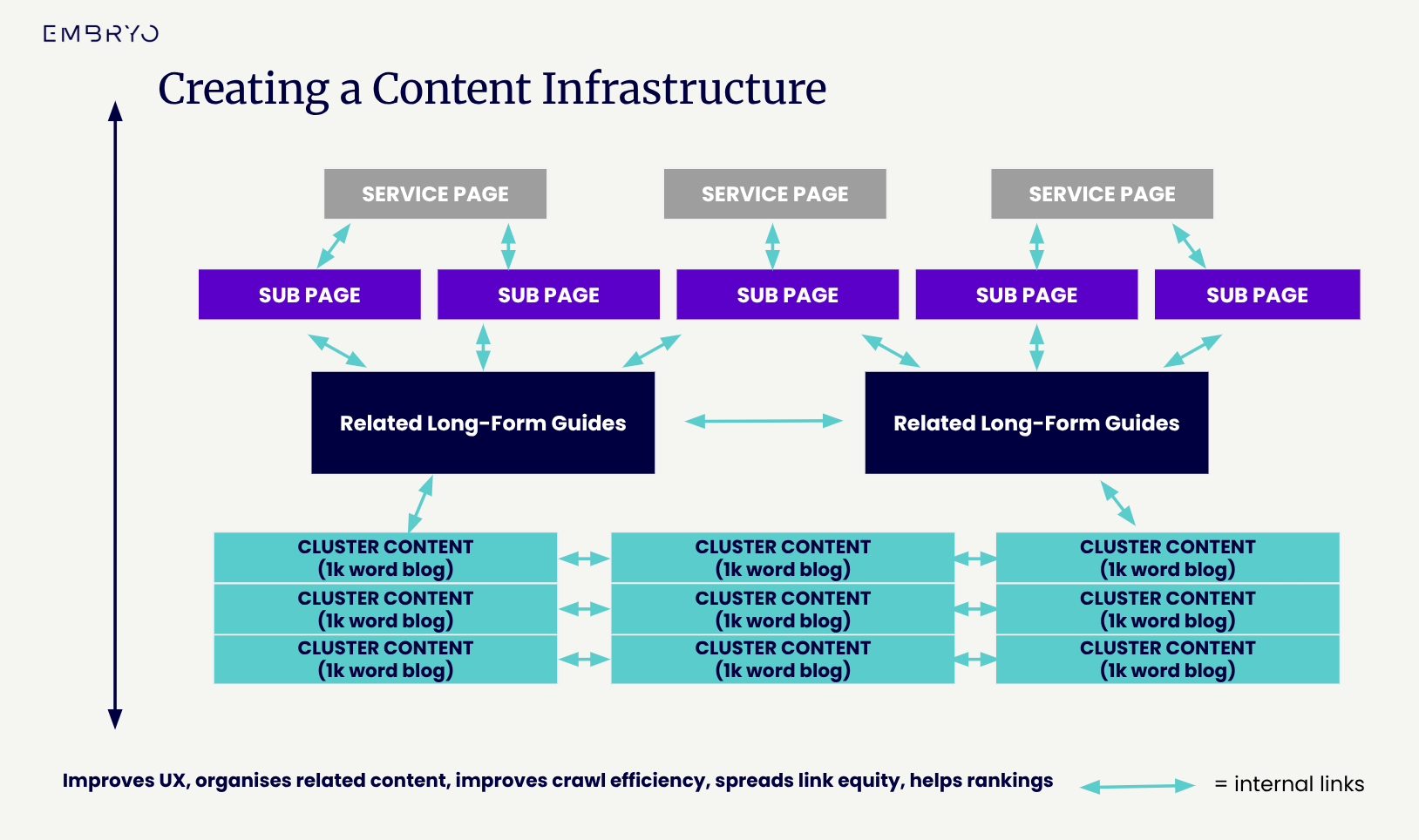
Keyword difficulty
If your website struggles to rank, you could be targeting keywords that are out of your depth and impossible to rank for. Your website’s content strategy needs to focus on relevant but realistic terms, especially if you have a particularly new or low-authority website.
To figure out if your chosen keywords are too competitive, simply enter the terms into Google and assess the top ranking pages. If you’re faced with a bunch of big companies with a domain authority higher than your own, it could be tough to compete. Instead, go after low competition keywords. Specific, long-tail keywords with lower search volume tend to be the golden nuggets!
Topic relevancy
Google expects websites to create content that’s relevant to their industry and valuable to their target audience. It’s vital that you stay in your lane rather than writing about random topics just for the sake of ranking.
Topical authority is a confirmed ranking factor, and you can only build it by covering everything there is to know about your subject. Strengthen this by consistently crafting and interlinking high-quality content that reflects your expertise and experience.
Writing about unrelated topics can make your site seem unfocused, which may ruin your chances of ranking well for industry-relevant searches.
Matt Williamson
Senior SEO Manager
Aim to cover every closely related term with topic clusters to establish your site as the go-to knowledge hub for your field.
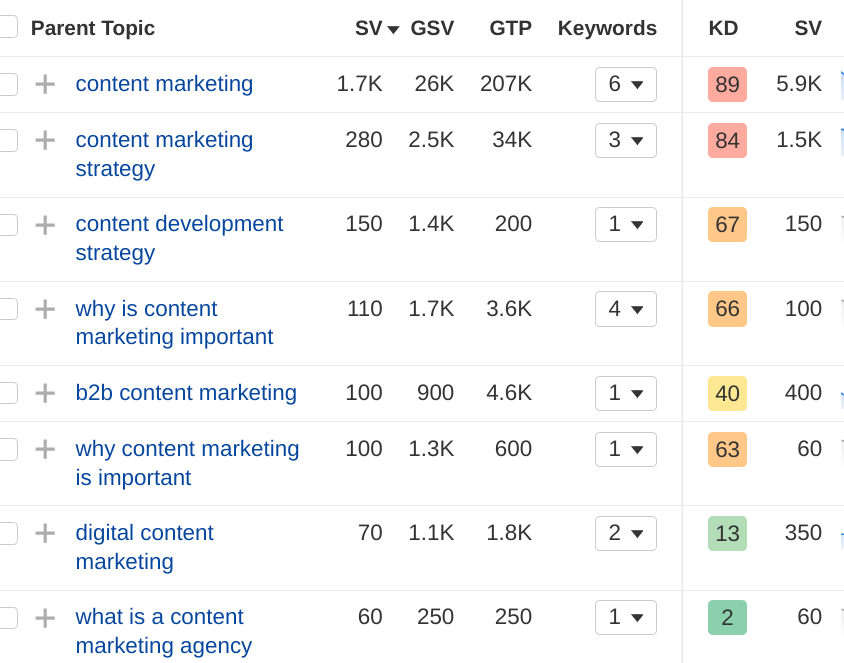
(source: AHRefs Keyword Explorer)
Top tip: Write about subjects that bring in valuable traffic and attract the right attention from people who would be interested in what your website has to offer.
Search intent
According to the Google Content Helpful update, search intent is one of the most important ranking factors that SEO experts need to pay attention to. If you’re confident that the state of your wider website is optimised for search, then search intent could be where you’re falling down.
In a nutshell, search intent refers to how well content matches what a user is looking for when they type in a keyword. Most search terms fall into 4 different categories: informational, transactional, commercial and navigational. It’s important to align:
- The content format (video, category page, ultimate guide, long list, review, etc.)
- The depth (whether it’s a quick and short answer or an in-depth analysis)
- The layout (how quickly you provide the useful information that the user actually wants to see).
- The relevance (if the content written is relevant to the query)
Top tip: To craft content that matches the search intent, analyse the top ranking content pieces – this will show you what Google perceives as useful to the user. If the top 10 pages are long lists, your best bet is to create a long list, too, as this is what users find most helpful. As always, mirror the style, but make yours better!
E-E-A-T signals
It is no longer enough to churn out generic written content and expect it to rank. If you’ve created a page and it’s not gaining traction, consider whether it demonstrates expertise, experience, authority and trustworthiness.
Multiple features and schema markups assist in elevating your overall E-E-A-T score, so we’ll save the full list for another day! However, you should be thinking about how you can showcase the expertise of the author in everything that you do. From trust signals and author bios to collaborating with industry experts and talking about your personal experiences, there are hundreds of ways you can make your content appear more trustworthy and, in turn, more rank-worthy!
If your current blog template gives away almost nothing about the author and publish date, consider building the following elements into it:

(source: money.co.uk)
Over or under-optimisation
Keyword optimisation can go one of two ways. Perhaps you’ve added too many instances of the same term, causing the content to appear spammy, or you’ve done the opposite and failed to include any keywords at all.
While this era of SEO is less about keywords and more about user experience and quality, you cannot expect Google to understand the context of your content without sprinkling in your target keywords.
At Embryo, we generally advise that you squeeze your primary and secondary keywords into the following:
- Title
- H1
- First paragraph
- 1-2 headings
- Body text where it feels most natural
If your content isn’t ranking, it could be due to improper optimisation – there’s no harm in revisiting content to help it rank higher!
Top tip: Look at top ranking pieces on page 1 to see how many times they’ve used keywords as a basis. You can also use content optimisation tools such as AHRefs Content Helper to guide your writing.
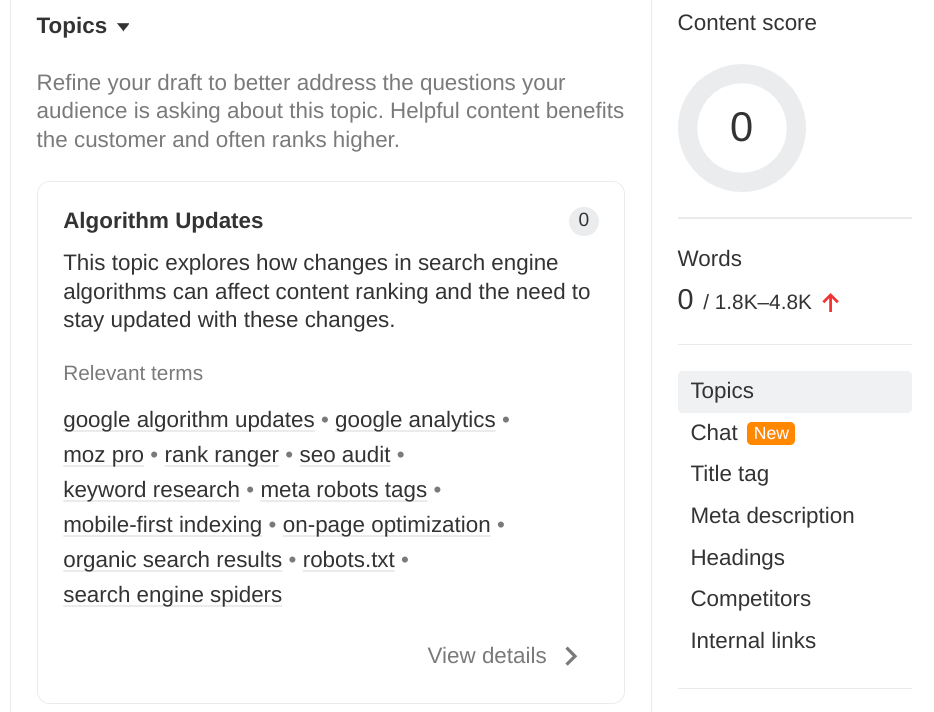
(source: AHRefs Content Helper)
Originality
Every time you create content, you should ask yourself this:
Does this content offer unique and additional insights compared to what’s already on page 1?
If you’re finding it hard to distinguish your content from what’s already out there, it’s unlikely that your page will secure a top ranking. Here are a few tips to help you create original content:
- Write about your personal experience in the subject matter.
- Create attention-grabbing infographics
- Source your own data to back up your points
- Collaborate with another expert in the industry
- Include quotes from experts
- Insert interactive elements
- Consider looking at it from an alternative perspective
- Research different ideas from forum websites and user-generated content platforms such as TikTok.
If your content isn’t ranking, it could be that you’re simply not offering anything new or valuable. After all, why would Google prioritise putting unoriginal content in front of users?
Duplicate content and cannibalisation
Have you written several pages of content that target similar keywords? Have you copied and pasted the same copy across multiple pages? Duplicate content is an absolute no-go – not only can it cause pages to conflict which each other, but it’s also bad practice to reuse content without adding unique value.
Keyword cannibalisation arises when more than one page attempts to compete for the same search terms, making it difficult for Google to figure out which one to prioritise. Don’t be fooled by thinking this approach offers more chances of rankings, it is actually likely to hinder performance.
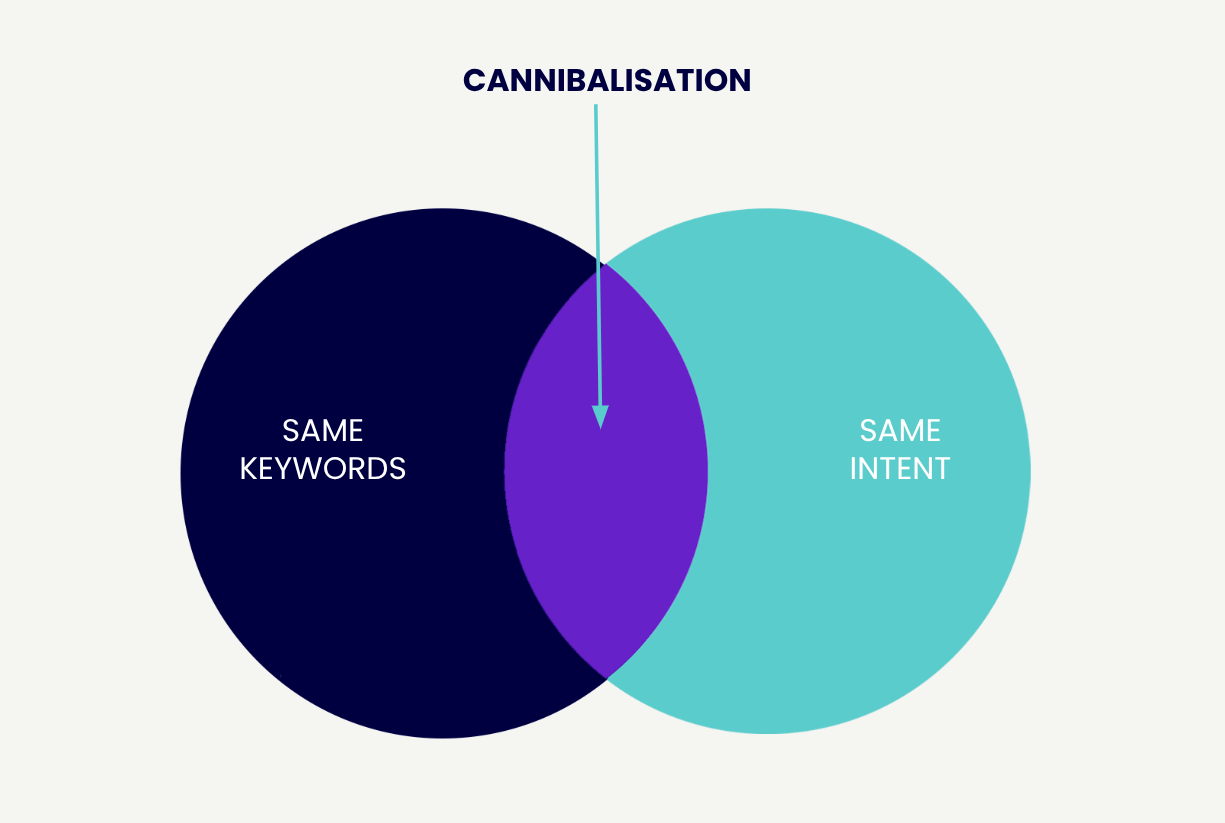
If this sounds like something you’ve been guilty of, audit your content to identify duplicates, then consolidate similar pages and put effort into making every page distinctive to serve different purposes.
Don’t stress about rankings – turn to Embryo
If you’re spending too much time stressing over ranking fluctuations and drops in organic traffic, it’s time to hand it over to the experts.
At Embryo, we take a consultative approach to SEO, working towards the same goals as you. From creating premium-level content to implementing technical actions and offering our honest advice, you can trust us with your site’s performance.
Ready to take control of those ranking drops? Drop us a message and let’s discuss a new strategy.













